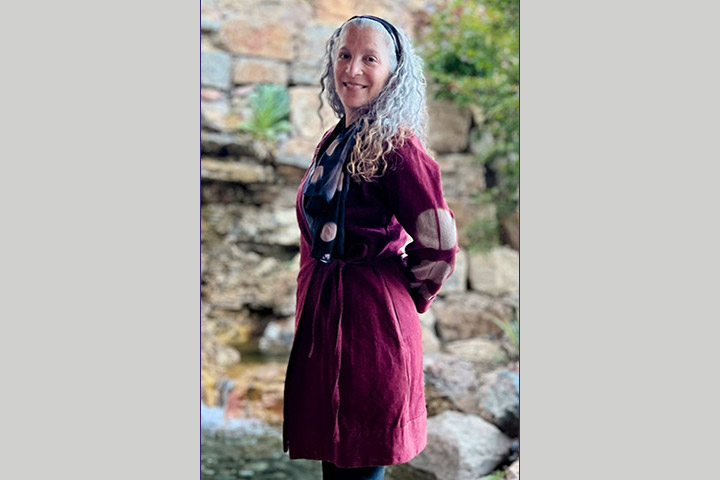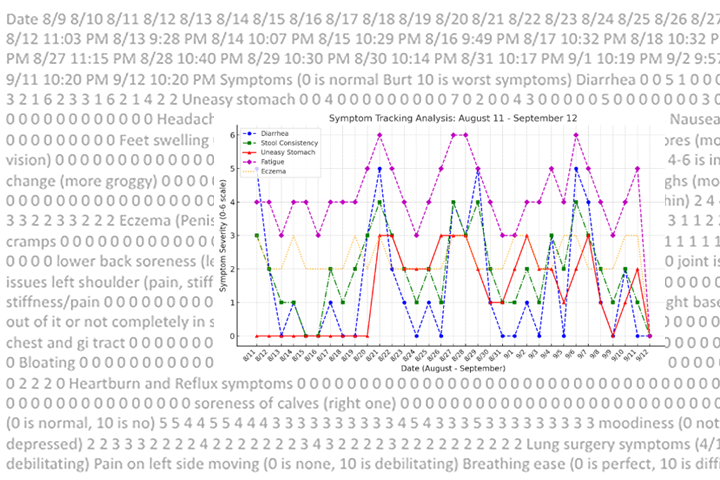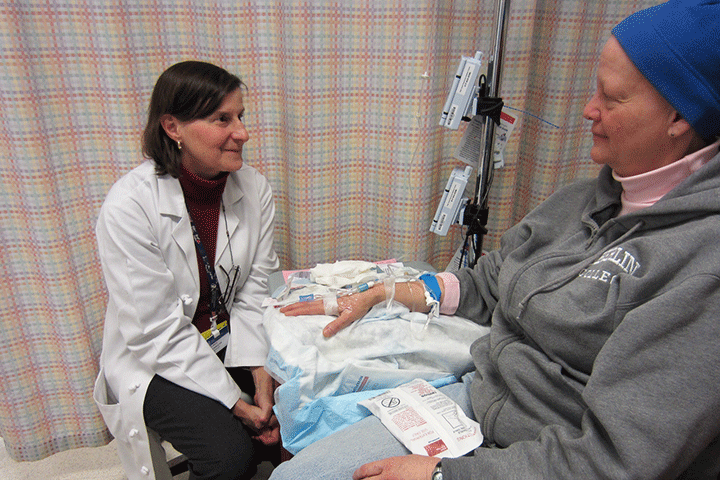All About End-of-Life Planning: Difficult Conversations

Difficult Conversations is a series of articles about the life challenges pancreatic cancer patients and their loved ones face.
Most of us don’t like to think about death, but the sad truth is that everyone who lives will one day die. And when you have pancreatic cancer, death may become top of mind.
“Preparing for your death is one of the best gifts you can give to your loved ones,” says Dawn Gross, M.D., Ph.D., a palliative care physician at the University of California San Francisco and founder of the hit podcast Dying to Talk. “Being clear about your wishes and having important documents in one place can help alleviate the burden on your loved ones when they’re grieving.” Plus, it allows you to take some control of the dying process while you’re still able.
Your end-of-life plan encompasses everything from your healthcare wishes to your legacy. While it can be difficult to outline what you want to happen when you die, it can give you and your loved ones tremendous peace of mind.
The Nuts and Bolts of End-of-Life Planning
The end of life is fraught with challenging emotions, not just for the person dying, but also for their loved ones. To make matters more complicated, Gross says it’s not uncommon for family members and loved ones to have wildly different ideas about what’s best for you—both at the end and after.
If you are nearing the end—and even if you aren’t—it’s important to take steps to ensure that you have the best possible death. You can start by paying attention to these four buckets:
Your Healthcare
Many hospitals and cancer centers request that patients complete an advance healthcare directive as part of their intake paperwork. While an advance directive is an important document, it’s only a starting point.
- Power of attorney for healthcare: Durable power of attorney (POA) laws vary from state to state, so make sure to talk with your healthcare team and check your state laws before you draw up a POA. Then consider who is best equipped to honor your end-of-life wishes. The person who fits the bill may not be your spouse, children, or parents. It may not be a person who is biologically related to you. “Ideally, you want to select someone who is going to speak on your behalf and advocate for you,” Gross says. “And you want them to be able to speak loudly and with conviction.” Known as a proxy, this person should be very clear on your values and wishes. Gross also recommends selecting an alternate proxy as a back-up and ensuring that loved ones and family members know who you have named and why you have selected them. Need help? Consider using tools like MyDirectives.com, which allows you to create a comprehensive end-of-life care plan.
- A living will: A living will informs healthcare professionals how you would like to be treated if you’re unable to make your own decisions about emergency treatment. With this document, you can specify which medical interventions you would agree to, which you would like to avoid, and under which conditions each choice applies.
Your Documents
Make sure your important documents are all in one place, and that the people you love know where to find them in the event of an emergency.
- A will: A will outlines what will happen to your assets—property, money, and valuables—when you die. It also specifies care instructions for dependents, including pets. Your will can be as basic or as detailed as your wishes require. “Some people even arrange their funeral services in advance of their death,” Gross says.
- Power of attorney for finances: With a durable power of attorney for finances, you’re able to appoint someone to make financial decisions for you if you are unable to make them yourself. The estate plan takes effect upon death of the grantor so if no living spouse exists/is named to roll over to, then the named executor of the estate would be in charge of distribution of assets as outlined in the estate plan. Unfortunately, if you don’t have an estate plan for your assets, things can get very complicated.
- A Living Trust: A living trust names a “trustee” to hold and distribute monies and property for you when you’re no longer able to manage those affairs.
- Other documents to collect:
- Your birth certificate and marriage certificate (if you have one)
- Life insurance documents
- Property agreements, deeds, and leases
- Valuations of expensive belongings, such as jewelry and artwork
- Organ donor card
- Passport, driver’s license, and membership cards
- Banking documents
- Titles for vehicles
With so much of our lives residing on our devices (phones, tablets, and computers), it’s important to ensure that your loved ones have access to important documents that are stored there. Be sure to create a document with all of your passwords, including those required for online bill paying, banking, email, and social media, and importantly, your mobile phone, storing them all in one place—or use one of the many software programs designed for password storage. Since online passcodes often autogenerate a secondary authentication that is texted to a mobile device, it’s important to ensure your loved ones have the password to access your phone.
Your Possessions
You don’t have to wait until you’re nearing the end of life to make decisions about who will receive meaningful items when you die. In fact, if you’re nearing the end of life, consider giving valuables to the people you want to have them while you’re still alive.
In addition to taking stock of who should receive what, take time to dispose of anything you don’t want your heirs to find—old journals, high school yearbooks, sensitive photographs.
Your Legacy
When you’re still alive, you have an opportunity to determine how you’ll be remembered and what your legacy will be. A few ideas:
- Draft your own obituary: Jot down details about your childhood, your accomplishments, the things of which you’re most proud. Just remember, it doesn’t have to be perfect.
- Make decisions about what happens after: Your loved ones may not know if you want to be buried or cremated or planted as a tree. They may not know what is most important to you in terms of a service or celebration of life. You can make things easier for them by making those decisions in advance.
- Create a last message: Write a letter, make a video or audio recording. Create one lasting memory for the people who matter most to you.
“Give yourself permission to speak from the heart, to tell your loved ones that you’re scared or that you don’t want to die,” Gross says. “And if you’re struggling to find the right words, or don’t know where to start, ask for a referral to palliative care. Palliative care professionals are trained to guide you toward making the decisions that align with your deepest desires.”






